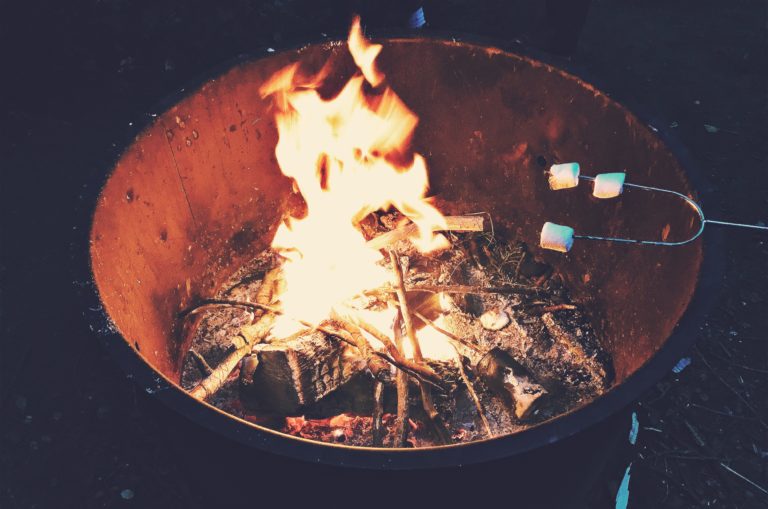
Can You Use a Fire Pit During a Burn Ban?
The crackle of a fire, the smell of roasting marshmallows, the laughter of friends and family gathered around a warm glow – these are some of the joys that come with owning a fire pit. But what happens when your outdoor fire enjoyment is threatened by a burn ban?
Each year, many areas of the United States experience burn bans due to weather conditions like extreme heat, drought, or high winds that can increase the risk of wildfires. During these times, it’s important to understand the restrictions that are in place and to follow them carefully.
What is a Burn Ban?
A burn ban is a temporary prohibition on the ignition of all open-air fires, including campfires, bonfires, recreational fires, and fireworks. Smoke and fire from these sources can contribute to the worsening of already dangerous conditions, posing a threat to lives, property, and the environment.
Burn bans are typically issued by local governments, such as city councils or county fire departments, and can vary in their specific regulations depending on the jurisdiction. Some bans may allow for small, contained fires while others prohibit all outdoor burning.
Can You Use a Fire Pit During a Burn Ban?
Whether or not you can use a fire pit during a burn ban depends on the type of fire pit you have and the specific requirements of the burn ban. In general, if the burn ban does not allow for any outdoor burning, then you cannot use a fire pit.
However, some burn bans may exempt fire pits that are enclosed or use natural gas or propane as fuel. These types of fire pits can be considered “contained fires” because they produce less smoke and have lower chances of spreading.
Before using your fire pit, it’s essential to check the burn ban regulations in your area and adhere to them. You can find this information by visiting the website of your local government or fire department or calling their office.
Consequences of Violating a Burn Ban
Violating a burn ban can have serious consequences. In most areas, it is considered a misdemeanor offense punishable by fines and other penalties, such as community service or imprisonment. Additionally, if your illegal fire causes damage to property or harm to others, you could be held liable for the resulting expenses and injuries.
Therefore, it’s crucial to be aware of the burn ban restrictions in your area and to follow them diligently. By doing so, you help protect your community, the environment, and yourself from the dangerous effects of wildfires.
Tips for Staying Safe During a Burn Ban
In addition to avoiding open-air fires, there are several other things you can do to stay safe during a burn ban:
- Never leave any fire unattended.
- Be aware of your surroundings and any potential fire hazards.
- Keep a water source nearby in case of fire.
- Dispose of cigarettes and other smoking materials properly.
- Report any suspicious activity or smoke to the fire department immediately.
By following these precautions, you can help prevent wildfires and ensure the safety of your community during a burn ban.
FAQs About Burn Bans
Q: Can I still use my gas grill during a burn ban?
A: Yes, most burn bans exempt gas and propane grills because they are considered “contained fires.”
Q: What is the difference between a burn ban and a fire restriction?
A: A burn ban prohibits all outdoor burning, while a fire restriction may allow for certain types of fires, such as campfires in designated areas.
Q: How long do burn bans typically last?
A: The duration of a burn ban depends on the severity of the conditions that prompted it, but they typically last until the weather conditions improve or the fire danger decreases.
Q: What should I do if I see someone violating a burn ban?
A: Contact your local fire department or law enforcement agency immediately to report the violation.
Q: Can I use a chimenea during a burn ban?
A: Whether or not you can use a chimenea depends on the specific regulations of the burn ban in your area. In some cases, chimineas may be allowed if they meet certain requirements, such as having a spark arrester.
Conclusion
Burn bans are an important tool that local governments use to protect communities from the devastation of wildfires. By understanding the restrictions of burn bans and following them carefully, you can help ensure the safety of your property, your loved ones, and your neighbors.
Are you interested in staying informed about burn bans and other fire safety topics? Sign up for our newsletter to receive the latest updates and tips.

Image: everymanscave.com

Image: health.clevelandclinic.org
6 Ways to put a Fire Pit on a Wooden Deck A: Illegal use of recreational fires when a burn ban is in effect will be met with fines if you are discovered. As an example, if you violate a burn ban in British Columbia, you will be fined up to $1,150. That is assuming that the illegal fire you set remains within the confines of your campfire.